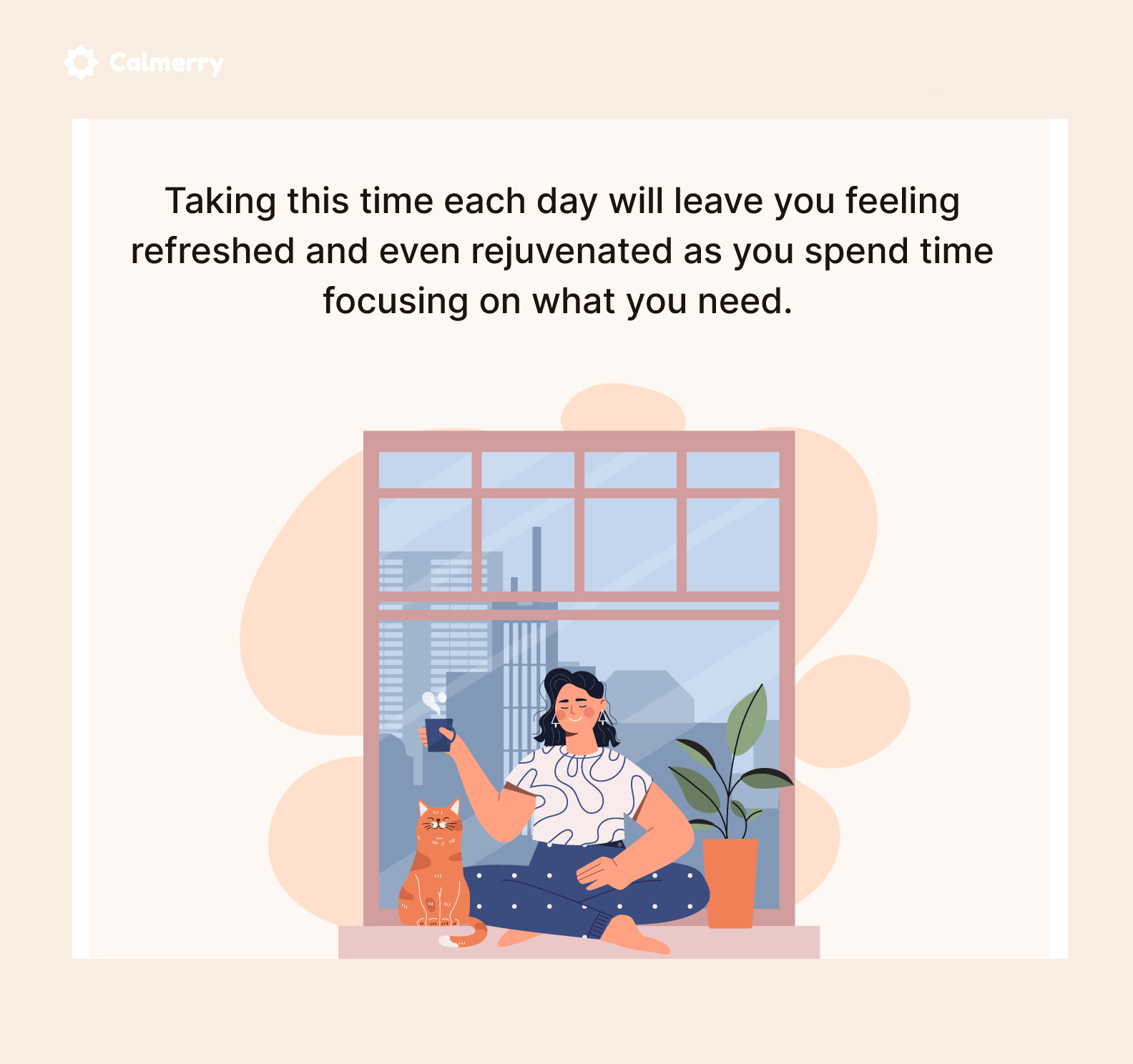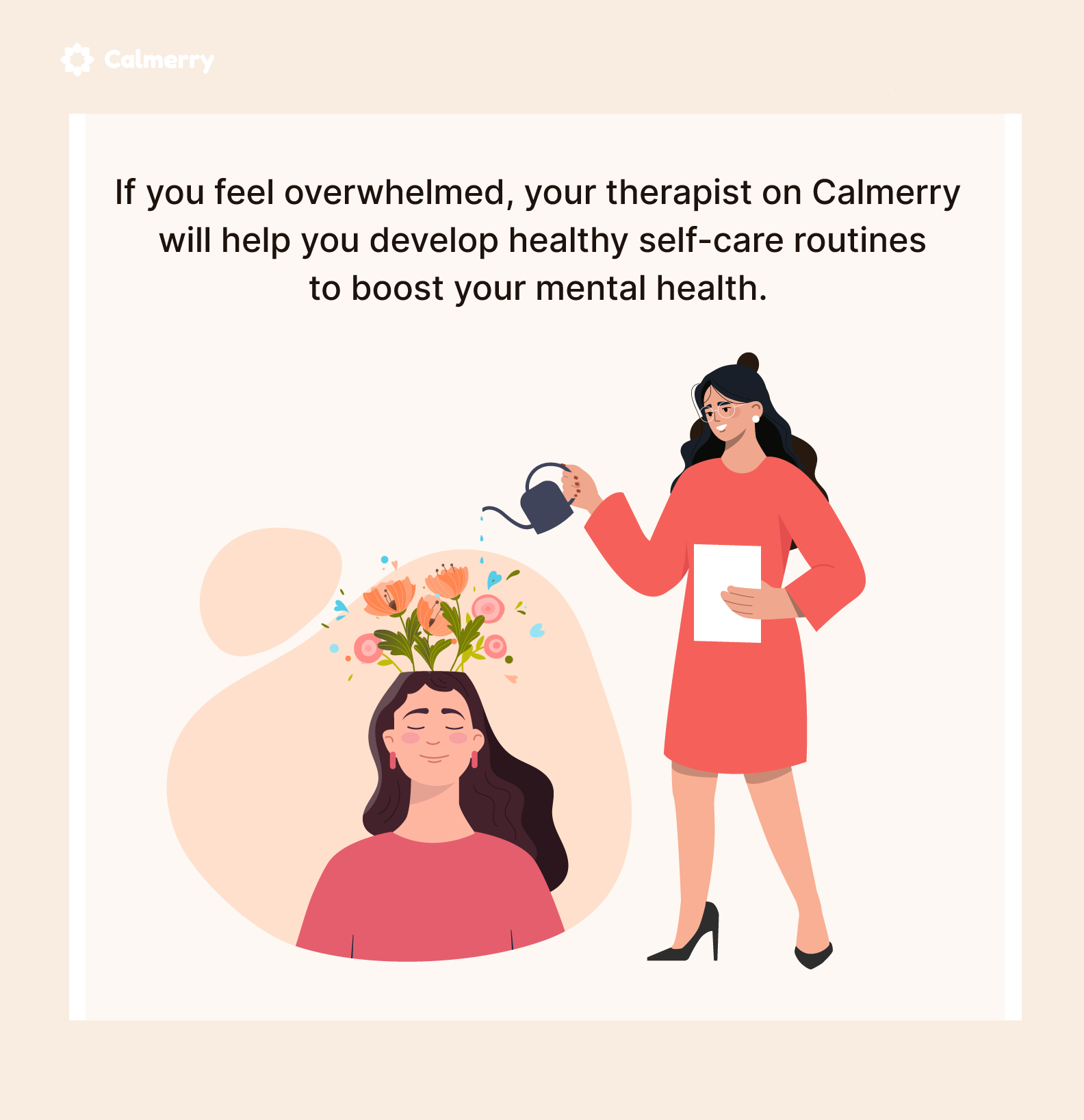8 Self-Care Strategies for Good Mental Health

We all want to take care of our emotional well-being so that we can enjoy life and benefit from good mental health. When life is busy, you might feel like you need to check everything off your to-do list before you can even think about your mental health.
However, the opposite is true!
When your mental health takes a back seat, you may find you can’t get through the tasks you need to. By putting some new self-care strategies in place, you will not only feel better, but you’ll also be in a far better place to manage all of life’s demands.
Here we will look at how to take care of yourself for restored mental health.
Helpful self-care tips for mental health
If you’re struggling with your mental health or feeling overwhelmed, our helpful tips are a great starting point. Developing healthy habits and employing self-care strategies will improve your positivity and confidence.
1. Make time for yourself
The first step in tackling your mental health is to make time for yourself. It is common to be stretched so thin that you rush from one activity or chore to the next without taking a breath in between.
Living in this way is common. But it leaves you with no time to check in on your mental health, never mind improving it!
When your schedule is jam-packed, it may seem like there isn’t a single moment of the day when you could take a break. However, start by looking for just five minutes – and you will soon discover where small pockets of time have been hiding.
Whether it’s five minutes after your children have gone to bed, five minutes in the car whilst you wait for soccer practice to finish, or five minutes in the morning before everyone else is awake, use that pocket to focus on yourself.
Even something as simple as taking some deep breaths, listening to a guided meditation on your phone, or enjoying listening to your favorite song can give you the space you need to stop for a while.

Once you have seen just how valuable five minutes can be, consider getting a babysitter for an evening so that you can go out for dinner or catch up with friends. You could even take a day off work to visit a spa, read a book from cover to cover, or indulge in a solo shopping spree.
Use your time to do the things you love, and you’ll soon start to feel this investment lifting your mood.
2. Keep a gratitude journal
Starting a gratitude journal is something that you can incorporate as part of your five minutes to yourself, or as an additional strategy.
A gratitude journal is a place where you can record and reflect on the things that you are grateful for. Once you get into this habit, your brain becomes rewired to concentrate on the positive things in your life, giving you a chance to foster resilience when something negative occurs.
Each day, make the time to write down three to five things that were good about your day. If you find it difficult to think of anything, consider what went well, what felt positive, or things that were better than yesterday. This could be as simple as the bakery still having your favorite treat in store, or arriving home from work five minutes earlier than usual.
Once your brain is rewired to noticing positives, recognizing positives becomes second nature.
3. Foster resilience
When things feel hard, your resilience can hit rock bottom. Part of becoming resilient is recognizing what’s important to you in life. Use your gratitude journal or another space to explore times when you’ve felt good about yourself, and times when you have made mistakes.
This process helps you acknowledge what you need to let go of, and which mistakes you need to learn from. Set some simple goals for the future, and write some positive affirmations to build your confidence up.

4. Eat well
If you’re feeling blue, it can seem like too much effort to prepare nutritious meals. However, eating well is a great form of self-care and can have huge benefits for not only your physical health but your mental health, too.
One of the best ways to take care of yourself is to nourish your soul. It is far harder to do this if you’re living on cookies and pizza.
Try to include the following foods across the week:
- Protein from meat, meat alternatives, or cheese. Protein is made up of amino acids, which not only fuel your muscles, but also make up the chemicals within the brain that regulate how you feel.
- Fruit and veg provide vitamins, minerals, and antioxidants to keep your brain cells healthy. This can be fresh, frozen, or canned to make it easier to incorporate into your diet each day.
- Wholegrains and wholefoods provide slow-release energy so that you feel fuller for longer. When your body is well-fueled, you will feel better able to manage life’s demands.
If you don’t have time to prepare meals every day, look for healthier convenient food options. Eating on the go doesn’t have to mean eating badly. If you have a little time, create a food menu at the start of the week and try to stick to it so that you can be sure you are eating all the nutrients you need.
It is also vital to drink at least two liters of water every day. Having a good fluid intake helps you concentrate and think clearly, which can certainly boost your mental health.
Once you are eating and drinking well as part of your self-care plan, you’ll soon notice an improvement in your well-being.
5. Sleep
The CDC states that adults need seven or more hours of sleep each night for optimum health and well-being. However, around a third of adults don’t manage this.
Sleep is vital for our mental health as this is when our bodies and brains refresh themselves. The brain uses this time to repair, consolidate memories and process information. Poor sleep is linked to heightened feelings of anxiety or stress.
Creating good ‘sleep hygiene’ patterns is essential. You can do this by going to bed early enough to allow for at least seven hours sleep, not using your cell phone in bed, and avoiding watching TV before you sleep.
These strategies can all help facilitate a better night’s rest so that you feel emotionally stronger the following day.

6. Exercise
Exercise is not only good for us physically, it’s also a great self-care strategy. Exercise leads to an increase in endorphins which trigger positive feelings.
Although you might grumble when you’re out of breath and sweaty, nothing beats the rush you get on finishing a bike ride or run.
Exercise can also include practicing yoga. Yoga is not only a good workout, but it’s also an excellent time to practice mindfulness.
7. Say no!
Saying no is vital for people-pleasers and over-achievers. You might be drawn to agreeing to help people in any way you can but burning the candle at both ends will only lead to burnout.
When your emotional plate is full, it’s time to say no. You don’t need to be rude to friends or family, and they will understand that you can’t help when you are already overstretched.
Practicing saying no allows you to prioritize your own well-being so that you can continue to support others in the future once your own mental health is back in good shape.
8. Ask for help
When your mental health begins to drop, it’s important that you can manage stress in a healthy way. The above tips are all effective self-care strategies. However, sometimes you’ll need a helping hand.
Reaching out to friends or family can be one of the best decisions you ever make. Having one family meal delivered to you, or asking your mom to watch the kids one evening, can really take the pressure off.
However, sometimes some external help is required. Starting online therapy gives you a safe space to talk about the pressures you face and the effect this is having on your mental health. A trained therapist can focus purely on you to make sure your needs are properly taken care of.

Final thoughts
Incorporating self-care to improve your mental health can be done in several simple ways. Five minutes for reflection or mindfulness can be found in even the busiest of schedules. And its success is likely to pave the way for trying more strategies in the future.
If your mental health would benefit from specialist advice, online therapy on Calmerry offers the opportunity to discuss any sources of stress or anxiety, as well as providing tailored guidance on self-care strategies to suit you best.
online therapy
live video session


